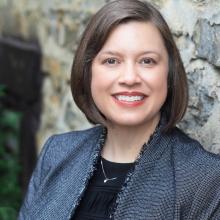We Made the Road By Walking: The Journey to an Online Course Redesign Community for Faculty at Historically Black Colleges and Universities
Brief Abstract
This session will focus on the outcomes of an online course and community aimed at helping faculty at Historically Black Colleges and Universities (HBCUs) “…to effectively design, develop, and deliver high-quality instruction online” (O’Keefe et al., 2020, p. 2). Participants will leave with ideas they can use in the design and delivery of similar communities.
Presenters

Extended Abstract
The pandemic of 2020 propelled higher education into an unanticipated pivot to emergency remote teaching. We know most institutions were ill-unprepared for this transition, but institutions, already underesourced, were intensely impacted by this modality shift and “HBCUs took steps to address virtual instruction (Wood, 2021, para 10). This session will examine an online course designed for faculty at Historically Black Colleges and Universities. The session will summarize course learning outcomes and how the course created a sense of belonging in a time of uncertainty. Participants will gain insight into creating high-impact teaching practices that promote belonging in similar academic spaces.
The session has been intentionally designed to be conversational, allowing multiple opportunities for interaction and deeper and more reflective discussions to occur. The session facilitators will begin with a discussion of the approach and outcomes associated with design and delivery of an online course aimed at supporting faculty, from across the disciplines and at HBCUs throughout the country. Following the introduction, there will be an opportunity to discuss the relationship between the intentional course design and research and practice literature associated with high-impact teaching and learning practices, course redesign, and the development of faculty communities, particularly those communities aimed at supporting faculty teaching online.
Next, there will be discussion of several short case study examples, from course participants, that demonstrate some of the ways in which the information and approaches used in the course influenced the course redesign changes across the disciplines and in courses that were offered fully or partially online. These redesign examples span a range, beginning with small changes (e.g., the development of community standards, statements of inclusion, use of inclusive language in course syllabi, etc.) to more nuanced course redesign (e.g., application of the TILT framework, use of Open Educational Resources or OERs, etc.).
Finally, we will reflect on and commit to ways in which the faculty development course and virtual community of practice can be further refined and adapted, with particular attention to inspiring faculty to “keep walking” and to find hope in the development of a high-impact online teaching and learning praxis.
At the end of this Discovery session, participants will be able to:
- Describe the characteristics of a course and community aimed at helping faculty teaching online
- Analyze 1-2 strategies used in the faculty course and community described in this session
-
Have tools to create a faculty community that supports the teaching and learning goals, shares resources and provides communal support to navigate the journey


